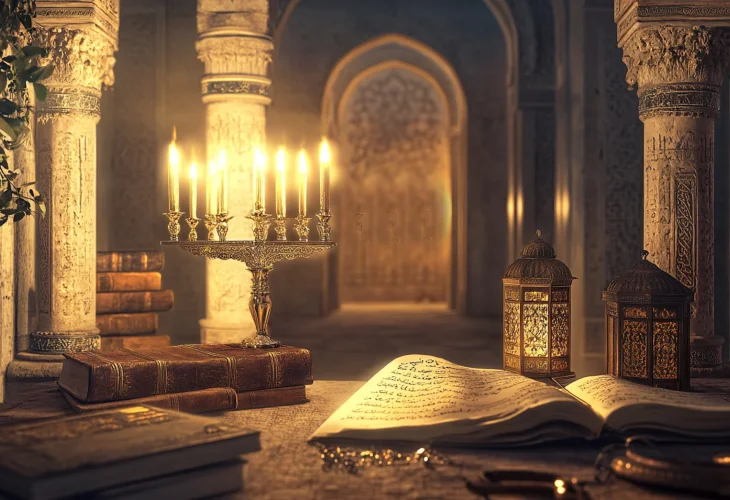History and Archaeology
The Jewish-Islamic Rift: A Family Story with Ancient Roots
The long and complex relationship between Jews and Muslims began long before modern politics, it starts as a family drama in the house of Abraham

The relationship between Judaism and Islam is layered with complexity, woven through history and shaped by deep ideological tensions. Over the centuries, it has experienced moments of closeness and long stretches of conflict. In our time, this rift has reached a dangerous boiling point, with Muslims across the world engaging in acts of aggression against Jews, sometimes with the shocking goal of erasing the Jewish people and silencing the truths Judaism carries forward. As the conflict intensifies, it is worth stepping back to look at its origins and essence. Contrary to what many believe, it did not begin with the founding of the State of Israel, nor even with the Jewish rejection of Muhammad and Islam. The story is far older, and it has the shape of a family drama, one that, like many, turned bitter, with disputes spilling far beyond family boundaries.
Our patriarch Abraham brought to the world a revelation unlike anything since creation. Humanity, he taught, was created with a clear purpose: to understand who made the world and what our relationship is with our Creator. In earlier generations, such as the generation of the flood, people knew the truth but rejected it, choosing instead to destroy themselves in the pursuit of their desires. Abraham’s contemporaries often wanted to do good, but their thinking was confused. They didn’t know who ruled the world or the true purpose of mankind, and so they fell into idol worship.
In this age of spiritual darkness, Abraham emerged as a bright light, a beacon of clarity. He stood alone on one side, the rest of the world on the other. He held knowledge of the Creator, the purpose of life, and the hope of humanity. He traveled from place to place, urging people to abandon their idols and instead serve Hashem, the One God, fulfilling the true purpose for which mankind was created.
Abraham’s revolutionary message began to spread, shaking the established order. Nimrod, the powerful ruler of that time, demanded that Abraham give up his mission and return to idol worship. Abraham refused, standing firm for truth. The miracle that followed his defiance only strengthened his message, and it began to gain influence across the world.
This message was unique and irreplaceable. But as Abraham grew older without children, there was a pressing question: who would carry on this mission? Without an heir, the spiritual revolution he had started might fade away. Hashem promised Abraham a son who would continue his path, bringing the knowledge of God to the world.
Into this scene came Abraham’s two sons Isaac (Yitzchak) and Ishmael (Yishmael). At first, Abraham hoped that both would share in his spiritual inheritance. He even performed brit milah (circumcision) for Ishmael, treating him as a legitimate heir. But Sarah, Abraham’s wife, saw the danger differently. To her, Ishmael was “the maid’s son,” someone whose rough ways could not be trusted with such a sacred mission. She feared that Ishmael would corrupt the spiritual legacy rather than protect it.
Hashem sided with Sarah. He told Abraham, “Through Isaac shall your descendants be called,” confirming that Isaac, not Ishmael, would be the covenant’s chosen heir, the one to guide humanity in the knowledge and service of God. Ishmael, though blessed in other ways, was excluded from the covenantal mission.
This decision left Ishmael stripped of the position he may have once thought was his by right. He not only lost the leading role but was cast out, without even a small share in the covenant’s inheritance. His descendants, disconnected from Isaac’s line, drifted far from Abraham’s teachings. While Isaac’s children received prophets, the Beit Hamikdash (Holy Temple), and the sacred texts of the Torah, Mishnah, and Talmud, Ishmael’s descendants wandered through the deserts of the Middle East without a central spiritual guide.
Some Abrahamic traditions, like brit milah and hospitality to guests, remained among Ishmael’s descendants, but without the deeper framework of the covenant, they were customs without the full connection to the One God that Abraham had taught. The rift between the brothers was more than personal, it was a split in the very mission of Abraham’s legacy.

